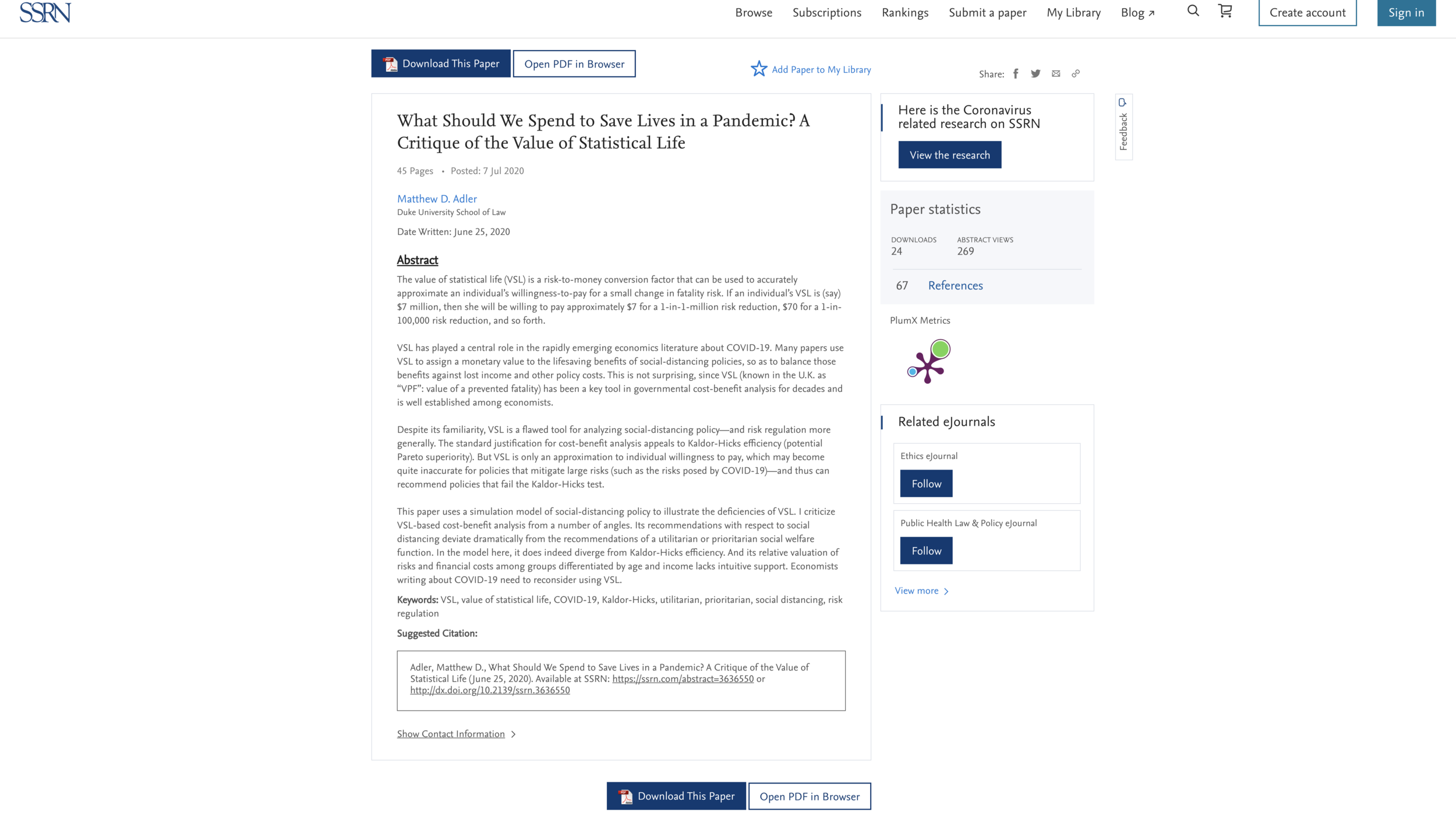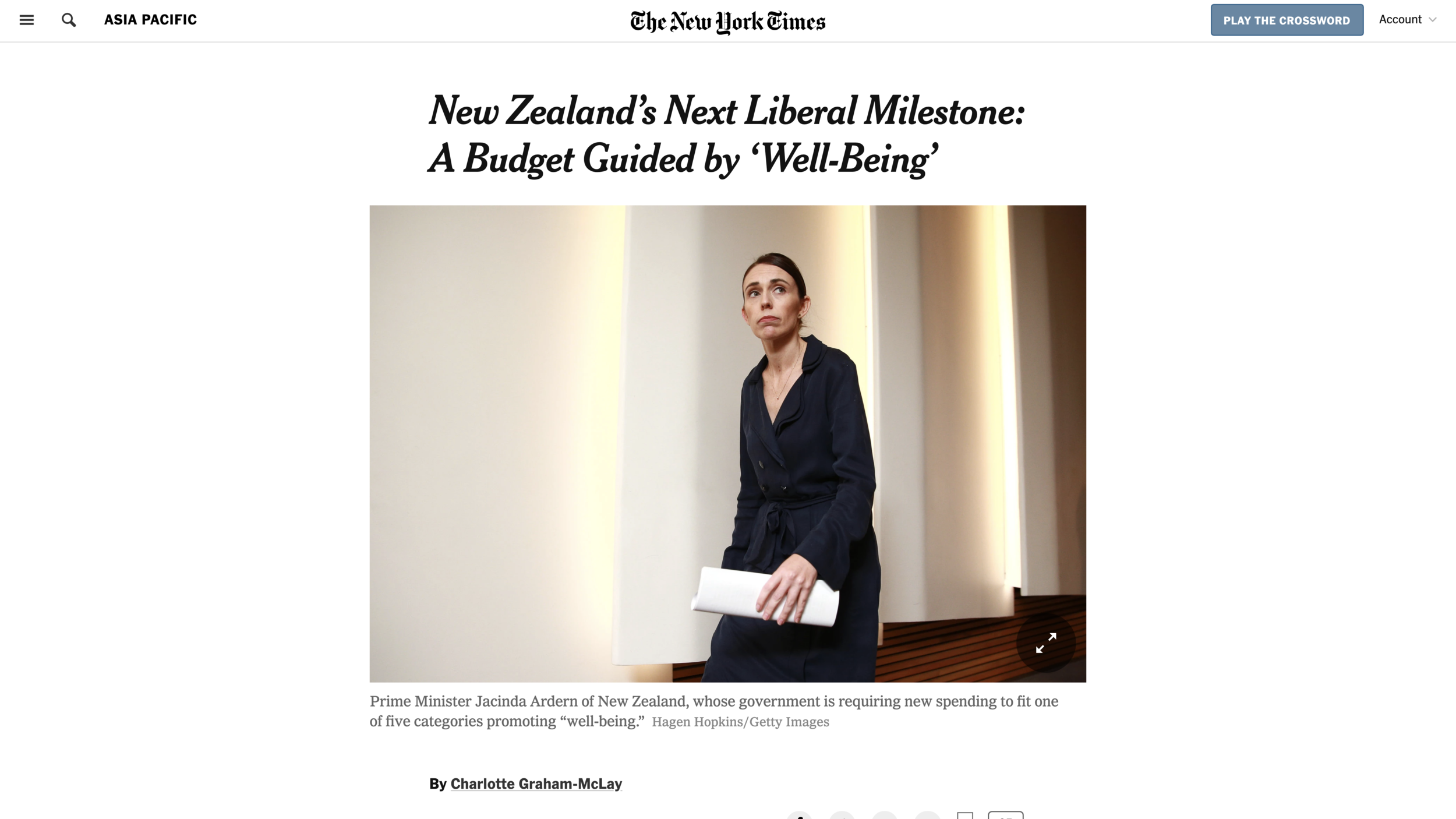A key aspect of higher religion—that holds for nonsupernaturalist religion as well as supernaturalist religion—is serious attention to choosing the governing goals for human action. Economists spend a lot of time studying how to make choices in order to best achieve their goals given the limitations of the situations they are in. But (perhaps because of the kind of modeling difficulties I discuss in "Cognitive Economics") economists spend much less time studying metachoice: the choice of the goals themselves. This is particularly true for the choice—based in part on goals that then might be fully superseded—of those goals that become an individual's ultimate goals.
Someone who successfully proposes goals for others that they had never before conceived of can be thought of as a kind of prophet—whether a supernaturalist prophet or nonsupernaturalist prophet. The possibility of a future prophet identifying a new goal that many people would gladly take on makes it impossible to circumscribe the universe of all attractive human objectives. People want more than the things money can buy. They want more than happiness and life satisfaction. And they potentially want many things that they have never even dreamed of.
In addition to prophets, who successfully propose goals for others, there are coaches who help people choose objectives for themselves. Such coaches might be friends, teachers, clergy, psychotherapists, leaders of human growth workshops, or people who call themselves "life coaches." Metachoice is so important that most people should seek out some coach to help them think through what they want their goals to be. Those who can't find such a coach in someone else competent to do that job need to coach themselves on a careful choice of their own objective function; but that is more difficult.
In the mid-1990's I attended a series of excellent personal growth workshops by Landmark Education. In the "Advanced Communication Course" I was encouraged to identify my personal objectives and create a symbolic reminder of them. The star whose two sides are shown at the top of this post is the result. One side of the star—which I show first—gives headings for the objectives that are designed to spark curiosity. The other side gives the objectives themselves. In the Landmark Education courses, each of these objectives is typically preceded by the stem "I am the possibility of ..." as an expression of personal identification with that goal. The relationship between the heading on one side and the objective on the other side is clear for most. For those without the Mormon upbringing I had, the meaning of "Zion" might be unclear. I explain it this way in "Teleotheism and the Purpose of Life":
Zion, the ideal society—that we and our descendants can build.
The expression of my own personal objective function that I created in that Landmark course has had an important effect on my life. I want to illustrate that in relation to my career, this blog, and my personal life.
The reason I am writing about how my career, this blog, and my personal life have been shaped by my personal objective function today is that today is the 5th anniversary for supplysideliberal.com: my first post, "What is a Supply-Side Liberal," appeared on May 28, 2012. I have had an anniversary post every year since:
- A Year in the Life of a Supply-Side Liberal
- Three Revolutions
- Beacons
- Why I Blog
Now, on to how my objective function plays out in my career, this blog and my personal life.
Profound Relationship
My most profound relationship is my marriage. I have two Valentine's Day posts about marriage:
My relationships with my children are different, but profound in their own way. After my mother died in Fall of 2012, I made a point of visiting my Dad often, fearing he would also die soon, and was gratified to have four years to deepen that relationship. As a bonus, since the rest of my brothers and sisters lived close to my Dad, my visits to my Dad also provided occasions for my brothers and sisters and I to get together and deepen those relationships.
I have a set of wonderful relationships that are quite intentional. Men often need more friends than they would have without intentionally setting out to have friends. In Ann Arbor, I belonged to a group of Mormon and formerly Mormon men that met every two weeks in its heyday and sporadically in more recent years to the present day. Given the closeness of the group, they were OK with my decision to leave Mormonism in 2000. I also joined a Men's Circle established by the Men's Movement within my Unitarian-Universalist Congregation in Ann Arbor that meets every two weeks. The meetings of our Unitarian-Universalist Men's Circle are consciously designed to encourage self-disclosure: sharing true stories and ruminations about our lives. My Mormon Men's Group and Unitarian-Universalist Men's Circle fostered some of the closest relationships I have outside of my own family. In particular, my friend Kim Leavitt is the one other person who belongs to both groups and my friend Arland Thornton is the one who now holds my Mormon Men's Group together.
Professionally, my most profound relationships are those with my coauthors and others I am working with. One sign of a profound relationship is when working through strong disagreements makes the relationship stronger, rather than disagreements causing the relationship to disintegrate. That describes the relationships I have had with others in what we have called the "Well-Being Measurement Initiative": Dan Benjamin, Ori Heffetz and Kristen Cooper. In the work of the Well-Being Measurement Initative, which absorbs the bulk of my research time these days, I also treasure the relationships I have had with our amazing research assistants (Samantha Cunningham, Pierre-Luc Vautrey, Becky Royer, Robbie Strom, and Tuan Nguyen), then-graduate-student coauthors (Alex Rees-Jones, Nichole Szembrot, Derek Lougee and Jakina Debnam) and other more senior coauthors (Marc Fleurbaey and Collin Raymond), but those relationships have not had occasion to weather any serious disagreements.
My blog has led to some surprisingly deep relationships. Here are some examples:
- Beginning my blog with his encouragement added another dimension to my relationship with my student Noah Smith, which has deepened in very interesting ways as Noah has become an important economic journalist.
- Joshua Hausman is one of my best friends. As you can see from "Brad DeLong and Joshua Hausman on Federal Lines of Credit," I was first introduced to Joshua by Brad DeLong in response to one of my posts.
- I have never met Matthew Rognlie in person, but I feel I know him well from our electronic discussions, prompted by things I had said here on this blog. (See for example "Sticky Prices vs. Sticky Wages: A Debate Between Miles Kimball and Matthew Rognlie.")
- Ruchir Agarwal was a star student in my intermediate macro class a while back, but it was Ruchir's interest in the discussion of negative interest rates I had on this blog that got us back together to write "Breaking Through the Zero Lower Bound" and do other work together on negative interest rate policy.
- I feel I know Tom Grey well because of his frequent comments.
- My Twitter arguments with John Davidson help me to know him much better.
- I do Facebook as an extension of my blog, and can't help getting to know those I interact with better than I otherwise would.
- Finally, I am always gratified when those I know in real life read a few things on my blog. It probably helps them understand me a bit better.
- All this is in addition to the much more obvious ability of blogging to generate many relationships that may not qualify as deep, but are still quite meaningful.
Human Connection and Justice and Welfare
When I write of "making the world a better place"—or more extravagantly of "saving the world"—I mean advancing human connection and justice and welfare. These three are very closely related. In particular, now that humanity as a whole has gained some power over nature, the greatest evils in the world come from a failure of "human connection," as groups of other human beings are seen as something less than fully human. I explore this phenomenon in "Us and Them," "The Hunger Games" Is Hardly Our Future--It's Already Here," "'Keep the Riffraff Out!'" Nationalists vs. Cosmopolitans: Social Scientists Need to Learn from Their Brexit Blunder," and "The Aluminum Rule."
Professionally, my two biggest efforts to make the world a better place right now are my work on negative interest rate policy and my work with the Well-Being Measurement Initiative to build national well-being indices that can help identify what people want and what policies are most successful in helping them get there. On my blog I also advocate many other ways to make the world a better place. To see one of my favorites, take a look at "How and Why to Expand the Nonprofit Sector as a Partial Alternative to Government: A Reader’s Guide." (I hope to give a better rundown of policies I have advocated in a bibliographic post sometime this Summer.)
I have felt some psychological pull toward more direct government service, but at this point in my life any significant direct government service seems increasingly unlikely.
For advancing human connection and justice and welfare, I consider religion and philosophy as well as science and public policy. It has been very interesting blogging about religion every other Sunday and blogging my way through John Stuart Mill's On Liberty and John Locke's Second Treatise on the other Sundays.
Overall, there are three moral principles that keep coming up as I think about making the world a better place:
- Doing good rather than harm.
- Treating all human beings as equals, regardless of their origin.
- Truth.
On the third point, I find myself especially distressed when someone in an academic position cares more about advancing their career than they do about the truth.
In my personal life, my efforts to advance human connection and justice and welfare are random but real. I don't notice everything around myself, but when I do notice an injustice, I want to do something about it. I don't mean it is all to the good, but I think the fact that I don't notice everything around myself keeps me from burning out.
All People Being Empowered by Math and Other Tools of Understanding
Professionally, a big part of my teaching (for undergraduates as well as graduate students) is helping students to understand math. I hope I can both make potentially hard things easy and also instill some enthusiasm for math and related tools of understanding such as logic and graphs. I hope some of my papers accomplish the same job of making what could be difficult math a little easier.
Without consciously setting out to make math a theme of my blog, it has become one. "There’s One Key Difference Between Kids Who Excel at Math and Those Who Don’t," which I wrote with Noah is by far my most read piece, and my follow-up pieces also did well (though at least an order of magnitude less in readerships): "How to Turn Every Child into a 'Math Person'" and "The Coming Transformation of Education: Degrees Won’t Matter Anymore, Skills Will." I also have many minor posts on this theme; one recent post in this category is "You, Too, Are a Math Person; When Race Comes Into the Picture, That Has to Be Reiterated."
In my personal life, I hope I transmit a bit of my love for math through my dabbling with number theory. I have had some success in inveigling my wife Gail in memorizing hotel room numbers by factoring them. I make Archimedean solids and other geometrical shapes with Magnetix











